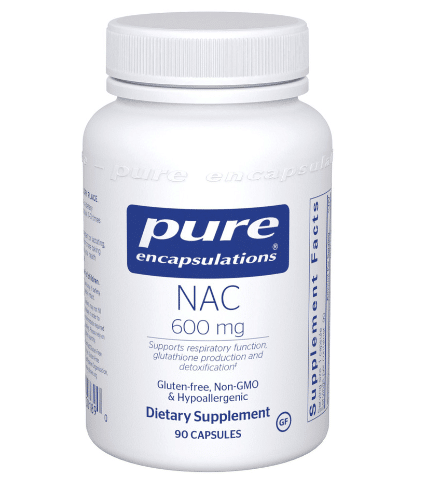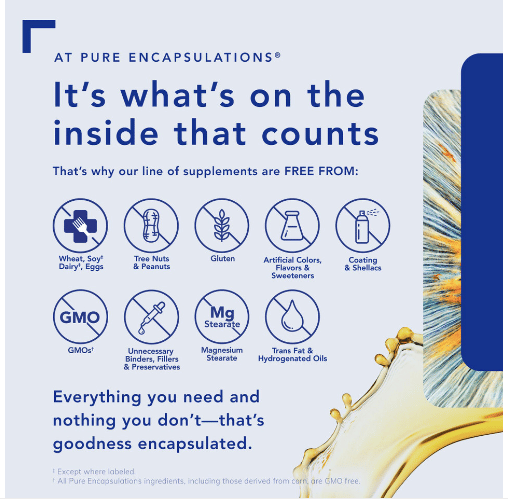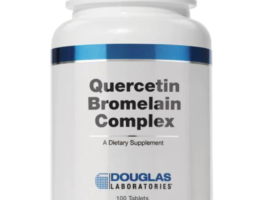Last updated on February 14th, 2023 at 03:35 pm
Kidneys are two bean-shaped organs that do plenty of hustle behind the scenes:
- Filter toxins from your body.
- Regulate blood pressure.
- Produce essential hormones.
- Keep your calcium and vitamin D levels in check.
If a kidney were a man-made machine, it would be one hell of a machine.
The two-paired powerhouse organs process about 200 quarts of blood daily, clearing your body of excess water and waste materials. They even perform elbow grease while you’re sleeping.
If they fail you, the toxin and fluid buildup in your body will strain other organs, such as your liver, blood vessels, and heart, leading to a long list of symptoms — exhaustion, headaches, nausea, and water retention included.
A little gratitude is in order, don’t you think? A pat on the back (for these two hard-working guys) and a little TLC will suffice.
This is where a kidney detox comes in.
So, is there one single power cleanse to flush your kidneys? No, but there’s still a whole stack of things you can do to give those power organs a nudge. Below are a few research-backed ideas on how to detox and keep your kidneys healthy.
What Is a Kidney Detox?
A kidney detox (or kidney cleanse) is a prolonged period of fasting which includes a rigid diet or herbal supplements and cleanses.
Some kidney cleanses may include enemas, while others are limited to diet plans that focus on consuming kidney detox foods that aid the removal of toxins and waste from your body. But do you need a kidney detox, and which form of detox will it be if you do?
Kidney Detox—Should You Go for It, Yes or No?
Kidneys don’t typically need any special “cleaning” — so a kidney detox is not strictly necessary. However, you might want to give them an extra flush when exposed to a poor diet, toxins, and chronic stress. With that in mind, you can look into kidney detox regimens that can help promote kidney health.
You’ll know you’re a good contender for a kidney detox if you notice any below-listed symptoms bothering you:
| Symptoms | Explanation |
| High blood pressure | According to the NHS, high blood pressure can damage small blood vessels throughout your body, including your kidneys, consequently limiting their blood supply. [1] |
| Fatigue | Although kidney disease doesn’t tend to show early-stage symptoms (as the human body can cope with limited kidney function), fatigue may be a red flag telling you that you may want to give your kidneys a breather. [2] |
| Swelling | Swelling (or the fancy word edema [3]) of your feet and ankles indicates that there’s water retention happening in your body. That’s when you may want to consider detoxing your liver and kidneys. |
To maintain normal blood pressure and improve kidney health, most people only need to stay hydrated, consume healthy foods, and stick to a healthy lifestyle.
On the flip side, people with kidney problems or chronic kidney disease (CKD) need to undertake significant lifestyle changes and stop taking some medications that may further damage their kidneys. [4]
If this is you, specialized detox programs can be potentially unsafe, so you should consult your physician before starting any of the regimens. Yet, if this isn’t you, this short guide will show you how to cleanse toxins from your kidneys safely.
How Do I Cleanse Toxins Out of My Kidneys Safely?
Many kidney detox programs are marketed for bringing health benefits, such as increased energy, quick weight loss, and improved general health. But how do you safely separate the wheat from the chaff and detox your kidneys?
Some studies have shown the positive effects of kidney cleansing programs on managing weight loss, blood pressure, and insulin resistance. However, these studies are limited in scope and low in quality, so there is no compelling scientific evidence that detox diets and products can eliminate toxins from the body. [5]
For this reason, we don’t recommend any restrictive diets but propose a few golden rules you can incorporate to keep your kidneys going strong.
1 – Watch Your Sodium Intake
If you wish to go easy on your body’s cleansing organs, the first thing to do is limit your sodium intake. Too much salt in your diet can bring unnecessary complications such as high blood pressure. This, in turn, can increase your risk of kidney failure, heart disease, and stroke. [6]
According to the National Library of Medicine, the safe amount of sodium intake is 2,300 milligrams a day. [7]
A low-sodium diet that contains cauliflower, berries, fish, and whole grains will help you hit the sweet spot. Whatever you do, steer clear from processed foods, as these are typically packed with salt.
2 – Want to Flush Your Kidneys? Hydrate!
The best kidney cleanse you can afford is simply drinking more fluids. By doing so, you promote the body’s natural detoxification process. Now, let’s explain.
The kidneys are the body’s natural filtration system, and they use water to produce urine.
Low water consumption results in low urine volume. And this is by no means a naive matter. Low body hydration can lead to health conditions, such as kidney stones, further disrupting kidney function. [8]
That said, drinking good amounts of water can help your kidneys flush out waste and toxins. To help you monitor your fluid intake, here is the Institute of Medicine’s recommendations for total fluid intake for men and women.
The recommended daily intake of fluids is:
- 3.7 liters a day for men
- 2.7 liters a day for women. [9]
3 – Consider Slight Dietary Changes
You can use diet-based lifestyle changes to help promote healthy kidney function and cleanse your kidneys naturally. A kidney-friendly diet can help prevent waste and fluid from building up in your body, which is already a huge help for your kidneys. You’re basically putting less strain on your kidneys and keeping them from overworking.
Specific foods can be effective in alleviating certain kidney problems. For example, lemon juice has been proven beneficial for preventing kidney stone formation. [10]
Furthermore, apple cider vinegar can be helpful if used in small amounts. While there is not enough research evidence to claim that apple cider vinegar supports kidney health, some animal studies indicate its powerful antioxidant properties.
One study has shown apple cider vinegar’s protective effect against kidney oxidative injury. [11]
Below are a few do’s and don’ts to incorporate into your healthy diet to help your kidneys work better. However, these tips do not apply to people with preexisting kidney problems.
Kidney-Friendly Diet: Do’s And Don’ts
| Do’s | Don’ts |
| Apples Citrus fruits, such as limes, lemons, and oranges Vegetables Low-fat dairy products Berries Lean meats, including chicken and seafood Whole grains | Refined carbohydrates Processed foods Animal proteins, such as beef, pork, and organ meat Sugar and artificial sweeteners Alcohol Caffeine |
4 – Supplement With N-Acetylcysteine
Aside from certain foods, you can also look into attested nutritional supplements whose use has been medically justified. N-acetylcysteine (NAC) is a potent antioxidant that has been generously used in hospital settings and greatly applied in vivo and in vitro studies.
Fact: One excellent source of NAC is Pure Encapsulations NAC Capsules.
Our Renal Complex capsules (pictured below) also contain NAC, in addition to several other kidney supporting ingredients, such as 10 mg of vitamin B6 and 7.5 mg of magnesium. [12]
Although it’s known that NAC is critical for glutathione synthesis (and glutathione is king when it comes to free radicals protection and preventing oxidative stress), the mechanism for how it protects the kidney is not yet discovered.
N-acetylcysteine has been tested as a kidney supplement in several scientific studies.
- One study has found the beneficial effects of NAC for people with CKD undergoing coronary angiogram tests. This procedure includes injecting medical dye into the body, damaging the kidneys further. The antioxidant effect of glutathione can prevent this from happening.
The study reports an 86% reduction in the incidence of kidney damage in people who have been taking supplementation. [132]
- A systematic review including fifteen trials involving 768 patients found no adverse effects of NAC when administered to CKD patients. What’s more, there are some indications that NAC can improve eGFR, as well as reduce the level of serum creatinine and inflammatory cytokines. [143]
However, longer and larger studies are needed to confirm the effectiveness of NAC in people suffering from this medical condition.
Want to learn more about N-acetylcysteine and its effects on health and wellness? Check this article out.
Who Should Avoid Kidney Detox Programs?
Detox diets and kidney cleansing is not recommended for people with pre-existing kidney problems, especially those with CKD. What’s more, they can worsen the health status of these patients.
If this is you, discuss any treatment, cleanse regimens, and kidney supplementation with your health care provider and nephrologist.
Pave Your Way to Better Kidney Health
The bottom line is there’s no magic pill, or a single most effective kidney cleanse that will get your kidneys’ mojo working. However, a few diet and lifestyle changes, as well as stocking up on kidney-friendly foods, can cleanse your kidneys and benefit their function.
You can also take one to two of our Renal Complex dietary supplements everyday — but consult your healthcare practitioner before use if you’re pregnant, taking medication, or nursing.
A little goes a long way. Watching your eating and hydration habits will keep your power organs running like clockwork.
Simply Nutrients is a doctor-owned premier provider of nutritional and wellness products. Our mission is to empower people to take charge of their health.
Want more tips on how to improve health habits? Head over to our blog pages. Feel free to ask questions in the comment section or drop us a line; we welcome all your inquiries 24/7.
Resources
[1] https://www.nhs.uk/conditions/kidney-disease/
[2] https://www.nhs.uk/conditions/kidney-disease/symptoms/
[3] https://www.nhs.uk/conditions/oedema/
[4] https://www.kidney.org/atoz/content/5-drugs-you-may-need-to-avoid-or-adjust-if-you-have-kidney-disease
[5] https://www.nccih.nih.gov/health/detoxes-and-cleanses-what-you-need-to-know
[6] https://www.ncbi.nlm.nih.gov/pmc/articles/PMC6770596/
[7] https://www.niddk.nih.gov/health-information/kidney-disease/chronic-kidney-disease-ckd/prevention
[8] https://www.urologyhealth.org/urology-a-z/k/kidney-stones
[9] https://www.cdc.gov/nchs/products/databriefs/db242.htm#
[10] http://www.ncbi.nlm.nih.gov/pmc/articles/PMC4265710/
[11] https://link.springer.com/article/10.1007/s00232-014-9685-5
[12] https://www.ncbi.nlm.nih.gov/pmc/articles/PMC5752631/
[13] https://pubmed.ncbi.nlm.nih.gov/12392825/
[143] https://www.ncbi.nlm.nih.gov/pmc/articles/PMC8129408/
NOTHING IN THIS WEBSITE IS INTENDED AS, OR SHOULD BE CONSTRUED AS, MEDICAL ADVICE. ANY HEALTHCARE AND/OR NUTRITIONAL MATERIAL CONTAINED IN THIS WEBSITE IS FOR CONSUMER INFORMATIONAL AND EDUCATIONAL PURPOSES ONLY. SUCH MATERIAL IS NOT INTENDED AS MEDICAL ADVICE FOR CONDITIONS OR TREATMENT, NOR IS IT INTENDED AS A SUBSTITUTE FOR A MEDICAL EXAMINATION BY A HEALTHCARE PROFESSIONAL. CONSUMERS SHOULD CONSULT THEIR OWN HEALTH CARE PROFESSIONALS FOR INDIVIDUAL MEDICAL RECOMMENDATIONS
- Magnesium Threonate: An Honest Buying Guide for Health Enthusiasts - March 21, 2024
- Magnesium Citrate Vs Glycinate: 5 Key Differences And Benefits - March 14, 2024
- How to Pick the Best Magnesium Glycinate Supplement for You - March 7, 2024






